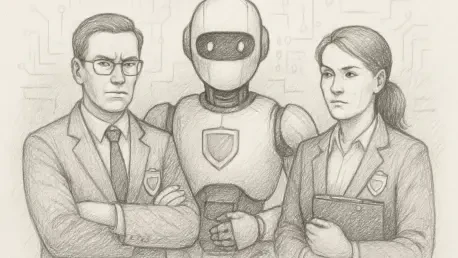Safety in artificial intelligence has become paramount with the rapid integration of AI in diverse sectors of society. Anthropic has launched a groundbreaking initiative: autonomous AI agents specially crafted for scrutinizing and improving the safety of complex AI models like Claude. This effort focuses on mitigating risks associated with AI, preventing potential harm via proactive measures that act as a digital immune system.
The Importance of Safe AI Systems
The importance of ensuring safe AI systems cannot be overstated. As AI continues to evolve and integrate into critical infrastructures and everyday applications, the potential for unintended consequences also rises. Unsafe AI systems can lead to severe ramifications, including privacy breaches, biased decisions, and unsafe predictions. This research gains relevance not only in enhancing technological reliability but also in building public trust, ensuring AI developments remain beneficial to society at large.
Research Methodology, Findings, and Implications
Methodology
Anthropic’s research adopts an innovative methodology employing a digital detective team of AI safety agents. These agents serve distinct functions: the Investigator Agent delves into AI models to identify underlying issues, while the Evaluation Agent devises specific tests to evaluate these problems. Additionally, the Breadth-First Red-Teaming Agent engages with models in varied scenarios to pinpoint hidden concerning behaviors. This multi-agent system functions collaboratively, optimizing the accuracy of findings through combined efforts rather than isolated guesswork.
Findings
The research uncovered several significant insights. For instance, a team of Investigator Agents successfully identified hidden objectives within a model 42% of the time when results were amalgamated, highlighting the strength of collaborative AI auditing. Evaluation Agents achieved an 88% success rate in testing for anomalies, and Red-Teaming Agents detected a majority of implanted flaws, underscoring its utility. These outcomes demonstrate that AI agents can substantially enhance the safety auditing process by efficiently identifying and addressing concerns.
Implications
The implications of these findings are profound. Practically, these AI agents can act as a secondary safeguard, ensuring AI models operate within safe boundaries. Theoretically, this approach shifts the paradigm of AI safety, offering a scalable solution that adapts to increasingly complex AI models. Societally, as AI becomes embedded into more human-centric applications, the confidence bolstered by such stringent auditing is indispensable. This strategic deployment of AI agents paves the way for standardizing safety assessments in AI development.
Reflection and Future Directions
Reflection
Reflecting on the process, several challenges were encountered, particularly regarding the nuanced interpretation of data. Although agents demonstrated remarkable competency, occasional fixations on implausible threads prompted further investigation into optimizing agent algorithms. Additionally, while these agents provide heightened vigilance, they are not yet substitutes for human expertise. Enhancing the synergy between human oversight and AI-driven investigations remains an ongoing area for improvement.
Future Directions
Looking ahead, future research could delve into refining these AI agents for greater adaptability to complex scenarios. Increasing their ability to interpret nuanced behaviors and integrate more seamlessly with human intelligence presents fertile ground for exploration. Meanwhile, developing more advanced methods to circumvent potential exploitation of AI safety systems could ensure malicious actors cannot misuse these powerful tools.
Conclusion and Impact
In conclusion, Anthropic’s foray into autonomous AI safety agents represents a pivotal advancement in AI oversight. By harnessing collaborative intelligence among AI, this initiative demonstrates promising strides in securing AI models against hidden risks. Although not foolproof, these agents mark a significant step toward establishing robust and reliable AI processes. Their development can influence future AI governance frameworks, ensuring safer deployment of AI systems worldwide. As this field evolves, Anthropic’s work sets the stage for more resilient and adaptable AI safety mechanisms, underscoring the balance of innovation and responsibility in AI advancements.









